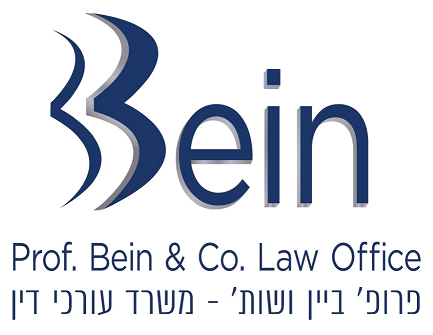Global Law Experts top search results to tackle law in Tender: Tailored solutions for every legal challenge. Let experienced lawyers guide you through legal disputes and challenges with law insights and expertise knowledge. Our members hold proven strategies and solutions for every complex legal need.

Since 2010, the Global Law Experts annual awards have been celebrating excellence, innovation and performance across the legal communities from around the world.


No results available Reset filters?
Tender Law Practice deals with the legal framework and procedures that govern the submission, evaluation, and acceptance of bids for contracts, particularly in public and private procurement settings. This area of law involves preparing, reviewing, and negotiating tender documents to ensure they comply with relevant legislation and promote fair competition among bidders. Lawyers specializing in this field advise clients on all stages of the tendering process, including addressing disputes that may arise from alleged irregularities or breaches of tender rules. Additionally, they provide guidance on the legal requirements for awarding contracts and help clients challenge or defend contract awards when necessary. By offering expert advice on compliance, risk management, and dispute resolution, tender law practitioners help businesses and public entities navigate complex procurement processes, ensuring transparency and protecting their rights throughout the tender lifecycle.
In a legal context, a tender is a formal offer made by one party to another to fulfill contractual obligations, usually involving the supply of goods or services at a specified price and time. It often refers to the bidding process where companies submit proposals to win contracts. A tender outlines the terms and conditions under which the offer is made, serving as a basis for forming a binding agreement once accepted.
A tender, on its own, does not create a binding contract. It becomes legally binding only when the party requesting the tender formally accepts the offer. Submitting a tender expresses an intention to enter into a contract under specific terms, but until acceptance, either side can withdraw. Once accepted, the tender’s terms become part of a binding agreement, establishing enforceable rights and obligations between the parties.
Legal tender is money that the law recognizes as acceptable payment to settle debts and obligations in court. Currency refers to the physical money—such as coins and banknotes—used in everyday trade. While all legal tender is currency, not all currency necessarily qualifies as legal tender depending on jurisdiction or transaction type. Legal tender specifically dictates what must be accepted to satisfy financial debts.
For a tender to be legally valid, it must be a clear and unconditional offer, without any qualifications or restrictions. It should be submitted within the specified deadline and adhere strictly to the format and requirements outlined in the tender documents. Additionally, the tender must demonstrate the bidder’s genuine ability to perform the contract and a sincere intention to be bound by its terms if accepted.
Tendering types include open tendering, where anyone can submit bids; selective tendering, which limits invitations to chosen bidders; and negotiated tendering, involving direct discussions with one or more parties. Other types include single-stage and two-stage tendering, depending on how proposals and pricing information are submitted. Each method suits different contract needs and levels of competition.
Global Law Experts is dedicated to providing exceptional legal services to clients around the world. With a vast network of highly skilled and experienced lawyers, we are committed to delivering innovative and tailored solutions to meet the diverse needs of our clients in various jurisdictions.

When your international business faces financial distress, quick action is key! 🔑 Negotiating with creditors, restructuring debt, and understanding insolvency laws can help regain stability. Global Law Experts is here to guide you through your options.
🌍Explore the details on our website.
🔗Link in bio
#GlobalLawExperts #CommercialLaw #BusinessLaw #LegalAdvice #BusinessGrowth #LegalTips #BusinessStrategy #LegalCompliance #Law #LegalKnowledge #LegalAwareness #Law101 #LegalEducation #IntellectualProperty

Running a business is hard enough — lawsuits shouldn’t make it harder. 🚫 Protect your business with the right legal strategies and expert tools from Global Law Experts. Let’s secure your future together! 💼
🌍Explore the details on our website.
➡️www.globallawexperts.com
#GlobalLawExperts #CommercialLaw #BusinessLaw #LegalAdvice #BusinessGrowth #LegalTips #BusinessStrategy #LegalCompliance #Law #LegalKnowledge #LegalAwareness #Law101 #LegalEducation #IntellectualProperty #Infringed #Ecommerce #LegalBranding

Using NRIC numbers as passwords or identity proof? That era is done. Strengthen your security with multi-factor authentication and biometrics—because your clients' trust depends on it.
#SingaporeLaw #DataPrivacy #CyberSecurity #PDPA #NRIC #MFA #StrongAuthentication #LegalCompliance #ClientTrust

Swiss law protects secured lenders—with precision. From real estate to IP and bank accounts, every asset counts—just as long as it’s defined, documented, and delivered.
#SwissLaw #SecurityInterest #Collateral #InternationalLending #SwissFinance #LegalCompliance #GlobalBusiness #AssetSecurity

Gold trading in Saudi Arabia isn’t just a business—it’s a lab test, a permit, and a legal tightrope. Want to succeed? Start with compliance, hallmarking, and permits—or risk losing it all.
#GoldTrading #SaudiLaw #PreciousMetals #BusinessSetup #LegalCompliance #GlobalBusiness #SaudiArabia #TradeRigour

Second citizenship isn’t permanent—especially if you break the rules. Know the risks and how to safeguard your status: be transparent, stay lawful, and honour all citizenship requirements.
#SecondCitizenship #CitizenshipRisks #DualNationality #Compliance #GlobalMobility #LegalAdvice #ImmigrationLaw

Send welcome message